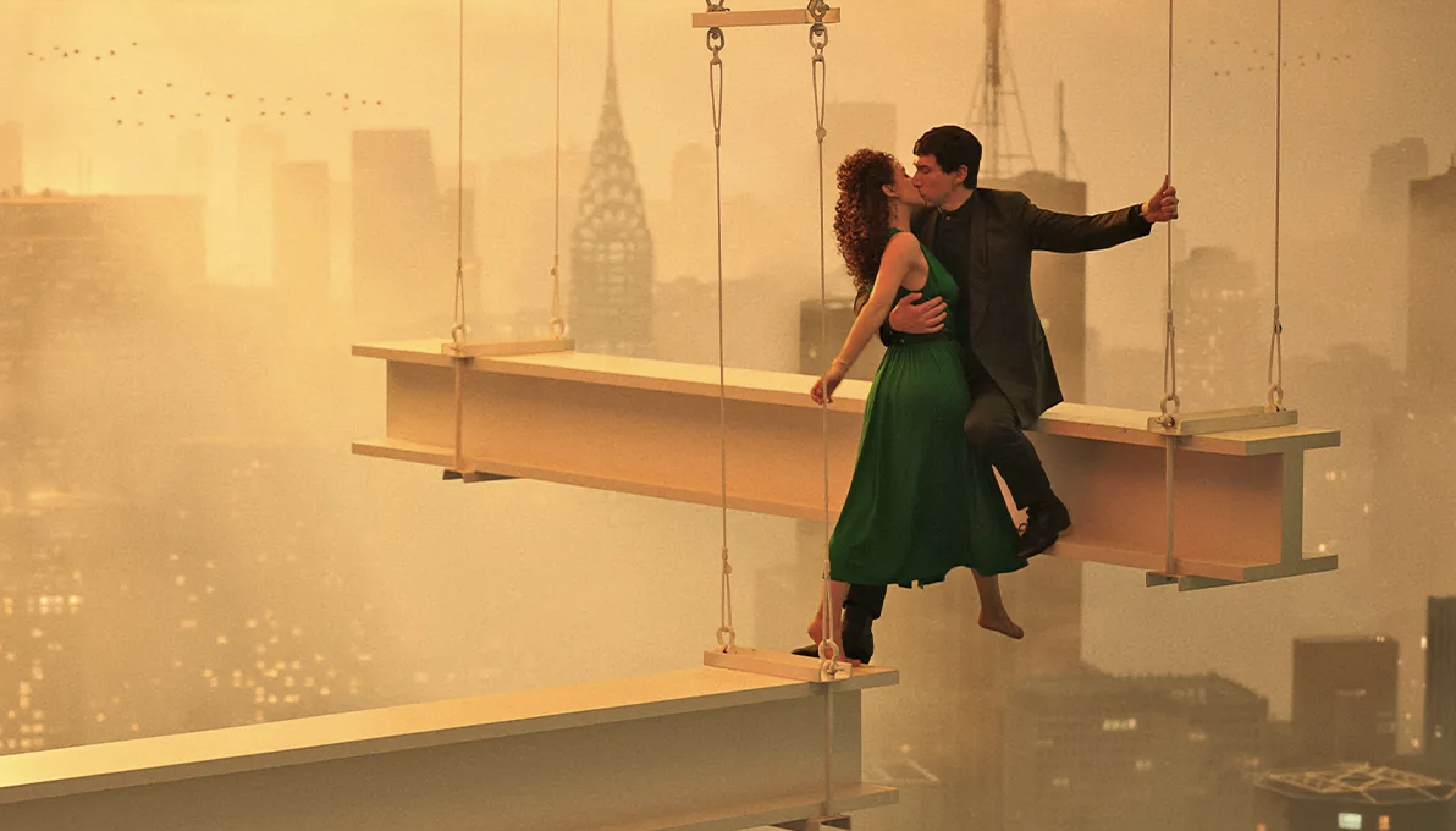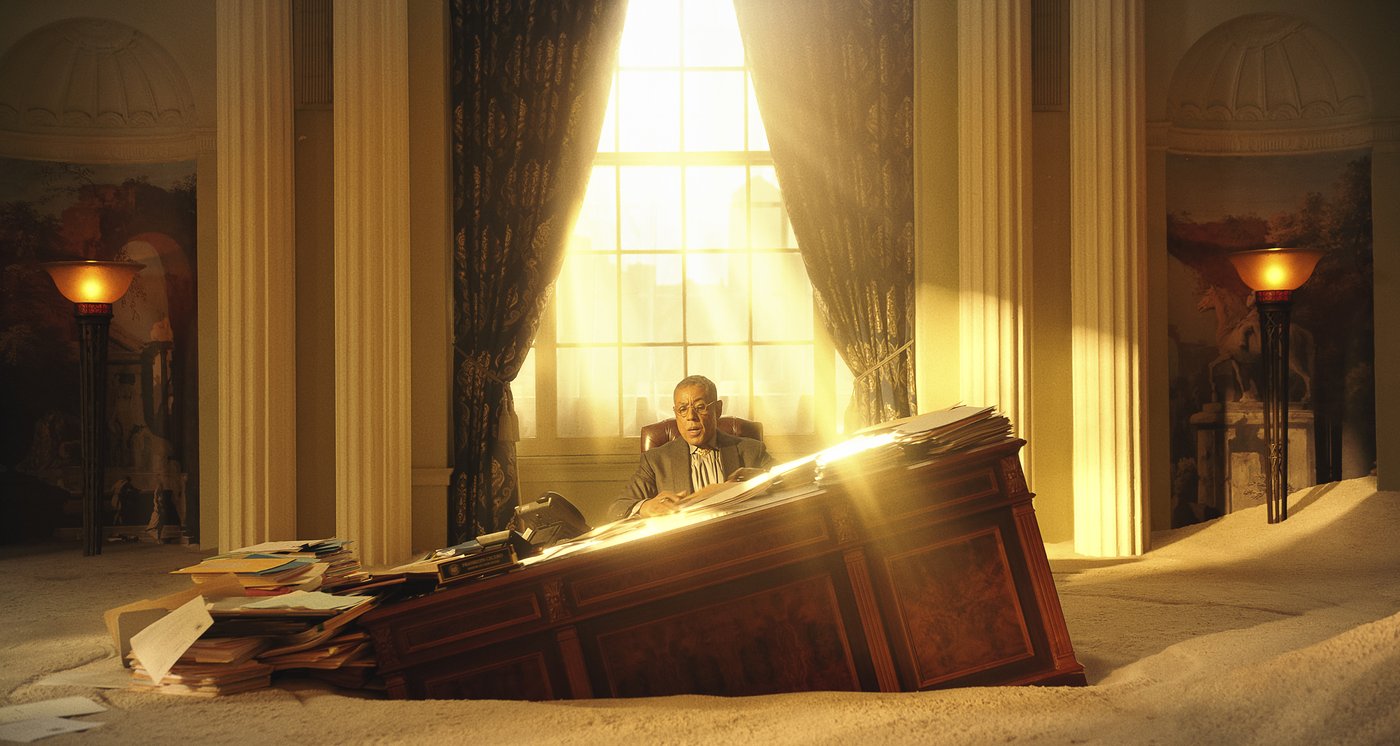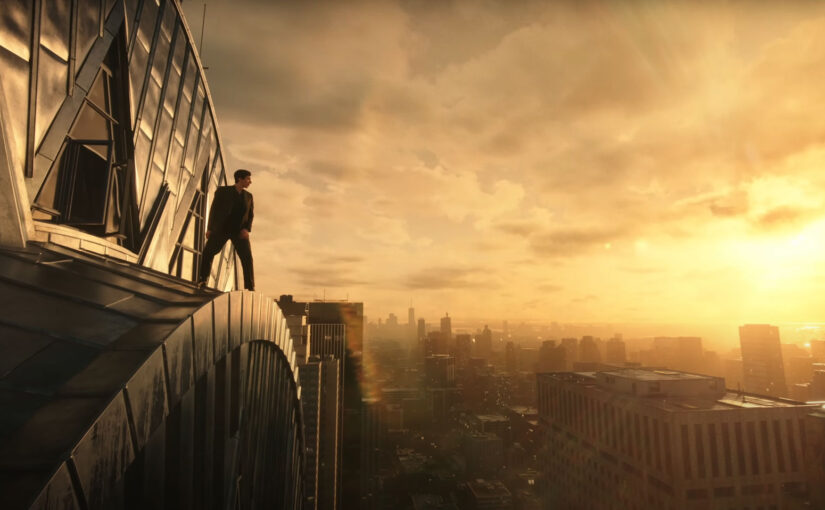Francis Ford Coppola | 2hr 18min

On the rare occasion that a film is accurately described as one-of-a-kind, the world is usually gifted with a 2001: A Space Odyssey, Eraserhead, or Persona, pushing the boundaries of cinema pushed to new frontiers. Now in 2024, Francis Ford Coppola also accomplishes something quite unique in Megalopolis, though only to the extent that a chef who throws one hundred arbitrary ingredients into a dish might claim it to be truly original. There are drafts of compelling ideas floating around here, but when it comes to developing any into a coherent storyline or motif, this bewildering, regal mess is hindered by its own fanciful digressions.
On Megalopolis’ most conceptual level, its fusion of Ancient Rome and modern America into the setting of an epic Shakespearean fable is promising, and it is no wonder that Coppola held onto it for so many decades as a passion project. This anachronistic dystopia is so chaotically debauched, one might almost believe that Federico Fellini’s spirit has possessed him with demented visions of Roman fashion shows, chariot races, and spectacular circuses, paving the way for another Satyricon. The cityscape glows a golden luminescence that delivers some astoundingly surreal sequences atop towering clockface platforms, and abstractly considers the state of urban decay through living, monolithic statues physically bearing its brunt.
Even the notion that architect Cesar Catilina possesses the ability to freeze time is set up as a fascinating metaphor for all-encompassing power, though like every other conceit that passes through Megalopolis, Coppola is quick to discard it for whatever comes next. From a sex scandal, to a cataclysmic disaster, to an assassination attempt, there is barely a set piece here that carries weight beyond the moment it unfolds, often disappearing as quickly as it emerged. The visual style is also brimming with inconsistent flourishes of split screen montages, canted angles, and spinning camerawork, but these too give the impression of rambling experimentations more than a specific, coherent vision. As for the much-promoted ‘live fourth wall break’, Coppola delivers little more than an empty gimmick, facing a movie theatre employee towards the screen for half a minute while pre-recorded dialogue gives the unconvincing illusion that they are speaking to Cesar himself.

The deeper into Megalopolis one gets, the more it becomes apparent that Coppola simply can’t figure out the right rhetoric to express the ideas he has harboured for so long. “Only two things are difficult to stare at for long: the sun and your own soul,” his characters ponder, reaching for philosophical insight via awkward soundbites that lose meaning the more one thinks about them.
It doesn’t help either that the impressive gravitas Coppola occasionally manages to summon up is drastically offset by his campy attempts at humour. Given the talent present in this cast, it is hard to believe that Adam Driver, Giancarlo Esposito, and Jon Voight all happen to be botching line deliveries of their own accord, and so we must look to the director here as the guilty party. The death of a key player in the final act is especially diminished by this tonal jumble, robbing them of the send-off they have earned in its power struggle.
For the first time in Coppola’s career, we can’t fully blame his failures on not having the resources on hand or studio compromise. Megalopolis is inimitably the work of a filmmaker whose interests have always lied in the mad ego of man, though the precision and focus that he once poured into The Godfather and Apocalypse Now is completely absent here. In its place, we get a dazzling glimpse into the mind of an artist freed from commercial constraints and cinematic convention, yet tangled in his inability to carry a single line of thought through to completion.
Megalopolis is currently playing in cinemas.


